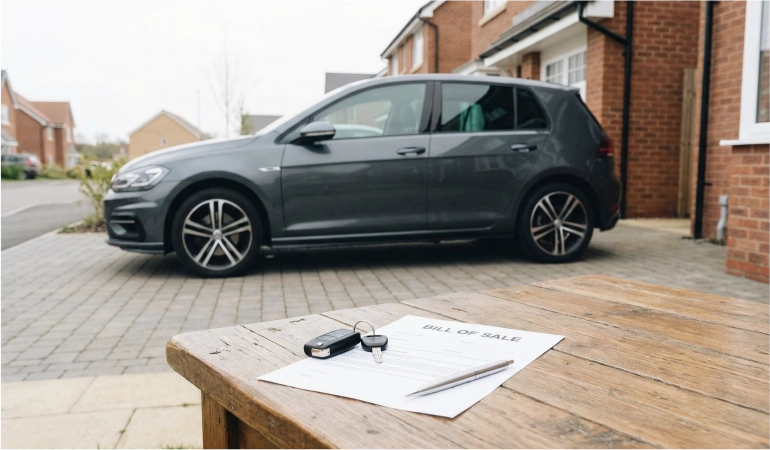MOT checklist and comprehensive guide
The majority of vehicles older than three years in England, Scotland and Wales require an annual MOT (Ministry of Transport) test, while cars in Northern Ireland are tested after four years.
August 27, 2025 18:02
The majority of vehicles older than three years in England, Scotland and Wales require an annual MOT (Ministry of Transport) test, while cars in Northern Ireland are tested after four years.
To help your vehicle pass the MOT at the first attempt, we've put together a complete MOT checklist to help you stay on top of your car's emissions, safety and general condition.
Find out when your MOT is due with our free MOT checker. Simply enter your vehicle's registration to check its MOT expiry date and view its test history.
What fails an MOT?
The three most common reasons for MOT failure are:
- Lights and signals: headlights, brake lights and indicators
- Suspension: springs, shock absorbers and suspension joints
- Brakes: brake pads, discs, parking brake and ABS system
We've got a full article all about the most common MOT fails and how to avoid them to help you understand what your vehicle may fail on.
How to prepare your car to pass the MOT
Here's what you need to consider as a driver in the build up to your car's annual MOT.
When does a car need an MOT?
When your car is three years old from the date of its registration (four years in Northern Ireland) it will need its first MOT test - and then it needs to be retested every year on the anniversary of its last MOT test.
Once passed, you'll get an MOT test certificate with test date on it, and the date of expiry so you know when your next one is due. You can get the vehicle retested up to a month (minus a day) before it expires and keep the original renewal date.
When is my MOT due?
Your MOT due date will be on your previous MOT certificate. If you’ve lost your MOT certificate you can use the GOV.uk tool to enter your registration number and vehicle make.
This will check both your MOT status and tax status in a matter of seconds. You'll also be able to have a fresh MOT certificate sent to you for free to replace the lost one.
Do you get a 14-day MOT grace period?
There is no 14-day MOT grace period. As soon as your MOT has expired it becomes illegal to drive the vehicle on the road. Doing so risks prosecution. You also cannot tax a vehicle without a current MOT certificate.
Can I drive without an MOT?
No. You can’t drive a vehicle without it having a valid MOT certificate. The only exception is that you're able to drive your vehicle to its MOT test, as long as the test has been booked in advance.
If you own a vehicle and are not planning on driving it you must keep it off the road and will have to declare it SORN.
Find out the risks of driving without an MOT in our full guide.
Can I drive my car without MOT if it is booked at a garage?
For owners who have a vehicle that doesn't currently have a valid MOT, you can only drive it to and from a pre-booked MOT appointment.
Make sure that you have proof of this on you when you are driving to your local garage, as you may be asked to present this to the police if stopped.
Pre-MOT checks
There are some quick things you can do as a driver to give your vehicle the best chance of passing its MOT. If anything does need a quick fix before your test, running through a checklist can help you keep your renewal date intact.
- Keep your car clean, inside and out. A boot full of clutter and an excessively dirty car could lead to an examiner refusing to carry out the MOT.
- Give number plates a clean as they need to be readable to pass the MOT.
- Check the windscreen wipers are in good condition, with no tears.
- Check all lights are in working order. Ask a friend or family member to stand outside the car and confirm lights function properly.
- Check tyre tread using the 20p test, and tyre pressure too
- Top up all fluid levels - screenwash, brake fluid and oil.
- Check that the horn works - give it a quick honk!
- All of your mirrors should be intact and secure to ensure you can use them safely.
- The Vehicle Identification Number (VIN) in your car’s V5C logbook should match that marked on your car’s bodywork.
If you do need a quick repair, consider bringing an expert to you. Mobile mechanics can carry out a wide range of repairs on your driveway or work car park.








